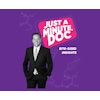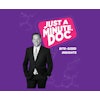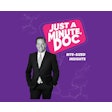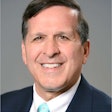
DrBicuspid.com is pleased to present the next installment of Leaders in Dentistry, a series of interviews with researchers, practitioners, and opinion leaders who are instrumental in changing the practice of dentistry.
Throughout his career, RevenueWell co-founder Serge Longin has met doctors, hygienists, office staff, organizational leadership, and more. One common denominator was that they all work hard. He noticed, however, that hard work alone wasn't enough to, as he says, "elevate yourself above the noise of the day-to-day work and spend some time focusing ON the business rather than what's happening IN the business."
Longin and his partners launched RevenueWell and the RevenueWell suite to streamline many routine tasks to automate practice marketing and create personalized patient communications, and patient self-service tools are included as well.
DrBicuspid.com: I was fortunate enough to attend your presentation in Boston at the Yankee Dental Congress. During your presentation, you said that retaining/attracting new patients wasn't "rocket science." And yet, your firm is thriving and your presentation was well-attended. Are dentists able to keep up with what is needed in 2014 and beyond to keep their practices thriving?
Serge Longin: I absolutely believe that dentists will be able to keep up.
 Serge Longin.
Serge Longin.
The trick, as always, will be in getting properly educated and being aware of how the world is changing; how to best prioritize your personal efforts and the efforts of your hygiene, front desk, and back office staff; and then where to ask for a little help from technology.
All this is not "rocket science" because the fundamentals are fairly simple and fairly stable: Be easily accessible for new patients, provide good treatment, and stay in touch with your existing patients.
The reason the presentation was well-attended is because there's been a huge amount of change in how these fundamentals play out in a world that is becoming increasingly mobile, increasingly social, and increasingly transparent. People come because they want to keep up on these changes and need help executing.
One of the services your company offers is a feature that asks patients to provide online reviews, which are then placed automatically. How effective are online reviews to drawing or retaining patients?
Having online reviews in proper places is the best and, ironically, the least expensive form of local search engine optimization (SEO) you can get as a local business. Without an automated process for collecting and distributing them, however, this can become quite a project.
As a tool for patient acquisition, online reviews serve a couple of purposes. One, they make your practice more visible online (think appearing higher in search results), and more approachable by patients who are doing the local search.
“Being proactive with negative feedback has been shown to make a difference with the reviewer, as well as with future readers of that feedback.”
Second, they accelerate the flow of new patients from existing patient referrals. In many situations, prospective patients, having received a referral from a friend or someone in their family, will check a provider's reputation online for additional data points before making up their mind. This behavior is not limited to looking for doctors. Think about how you might look up Yelp reviews for a restaurant to see what dishes others seem to enjoy.
Reviews can also be a tool for patient retention. The simple and honest act of asking someone what they think creates a channel for both positive and negative emotions to be acknowledged and articulated. I often hear from doctors who are scared to death of negative reviews. They believe, quite correctly, that a bad one can adversely impact their reputation, and have a substantial impact on how they are perceived. However, this only a concern if left unaddressed.
Being proactive with negative feedback has been shown to make a difference with the reviewer, as well as with future readers of that feedback. It's important to remember negative feedback provides an opportunity to learn about service concerns, and allows us to address the root of the problem -- often turning a negative review into a stellar one and an upset patient into a lifetime fan.
We do indeed help practices collect and channel patient reviews to places on the Web where they matter most. When we built our system, our goal was to turn this tedious and awkward process into an easy, automated, and positive one.
What is the importance of social media for a practice? Is it really effective in retention/attraction?
Social media is a way of personalizing the voice behind the office. Many patients interact with the folks at the front desk and the hygienist, but only for a few minutes with the doctors themselves. Social media brings doctors to life and humanizes them. In this sense, they become more than the person behind the mask and simply a person a patient can get to know and trust.
I am a huge proponent of social media, but wouldn't place it at the top of the priority list for most offices. It's very easy to get caught up in the buzz around these platforms because they are fun; but that said, in a typical office I walk into, allocating time to social media would involve allocating time away from other critical business activities (which often could use some help).
Unfortunately, the number of hours in a day isn't changing, and the work at a dental office is never done. If your recall, patient retention, and treatment follow-up and coordination processes are not humming -- your first and primary efforts should focus on those tasks before dedicating time to social media.
It is hard sometimes to march to a different beat than you may hear from the rest of the community when it comes to social media, but I'm a strong believer in having a framework that prioritizes your highest return on investment activities at the top and being disciplined about it. Social media needs to be a part of your marketing mix -- just pick the right amount of time to dedicate to it depending on the current state of things at your office.



















